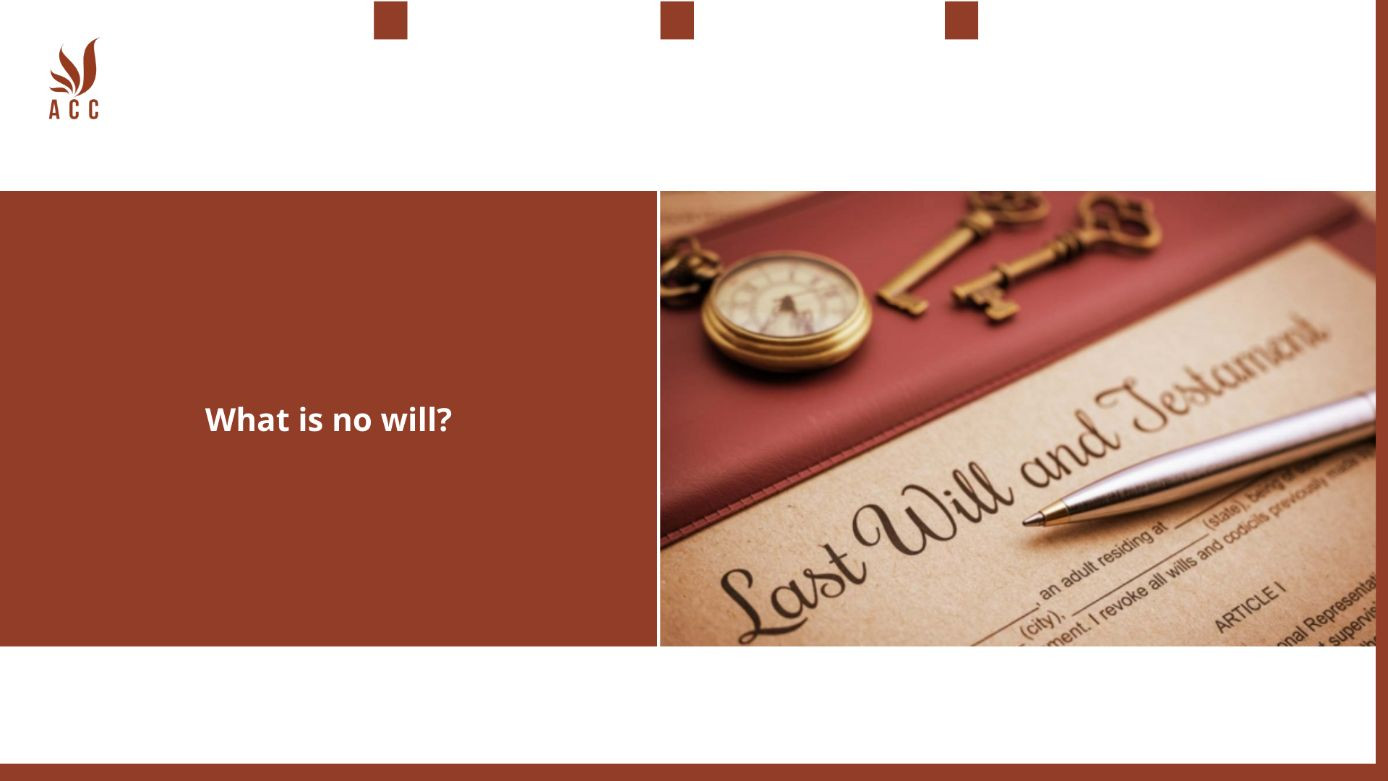A "no will" situation, often referred to as dying "intestate," occurs when a person passes away without having created a valid last will and testament. In other words, they do not leave behind a legal document specifying how their assets, property, and possessions should be distributed after their death.
When someone dies without a will, the distribution of their estate is typically governed by the laws of intestacy in the jurisdiction where they lived. These laws provide a default framework for how assets are distributed among surviving family members or heirs based on their legal relationships to the deceased individual. The specific rules of intestacy can vary from one jurisdiction to another but often follow a hierarchy of inheritance that may include:

1. Spouse:
In many jurisdictions, the surviving spouse is the first in line to inherit a portion or all of the estate, depending on the presence of children or other surviving relatives.
2. Children:
If the deceased had children, they may inherit a share of the estate. The division of assets among children can vary depending on the jurisdiction.
3. Parents:
In some cases, if there are no surviving spouse or children, the estate may go to the deceased person's parents.
4. Siblings and Extended Family:
If there are no immediate family members, the estate may be distributed to siblings or other relatives under the laws of intestacy.
The distribution under intestacy laws is often straightforward, but it may not align with the deceased person's wishes or the specific needs and circumstances of their loved ones. This is why many people choose to create a will to ensure that their assets are distributed according to their preferences.
5. When using ACC Law Firm's testament, entrepreneurs will receive
6. Q&a
Q1: What is meant by "no will"?
A1: "No will" refers to a situation where a person, upon their death, has not created a legally valid will or testament to specify how their assets and property should be distributed after their passing.
Q2: What happens when someone dies with no will?
A2: When someone dies without a will, they are said to have died "intestate." In such cases, the distribution of their assets is typically determined by the laws of intestacy in their jurisdiction, which provide a default set of rules for asset distribution among legal heirs.
Q3: Who inherits the assets of a person who dies with no will?
A3: The specific rules for intestate succession vary by jurisdiction, but typically, assets of a person who dies without a will are distributed among their closest relatives, such as a surviving spouse, children, parents, or siblings, depending on the legal rules of the particular jurisdiction.
Q4: What are the potential disadvantages of dying without a will?
A4: Dying without a will can lead to several potential disadvantages, including:
Assets may be distributed in a way that does not align with the deceased person's preferences.
It can lead to disputes and disagreements among family members over asset distribution.
There may be delays in the distribution of assets as the legal process unfolds.
The cost of legal proceedings and administration may reduce the value of the estate.
The deceased person's wishes regarding guardianship of minor children may not be known or followed.
Nội dung bài viết:






Bình luận